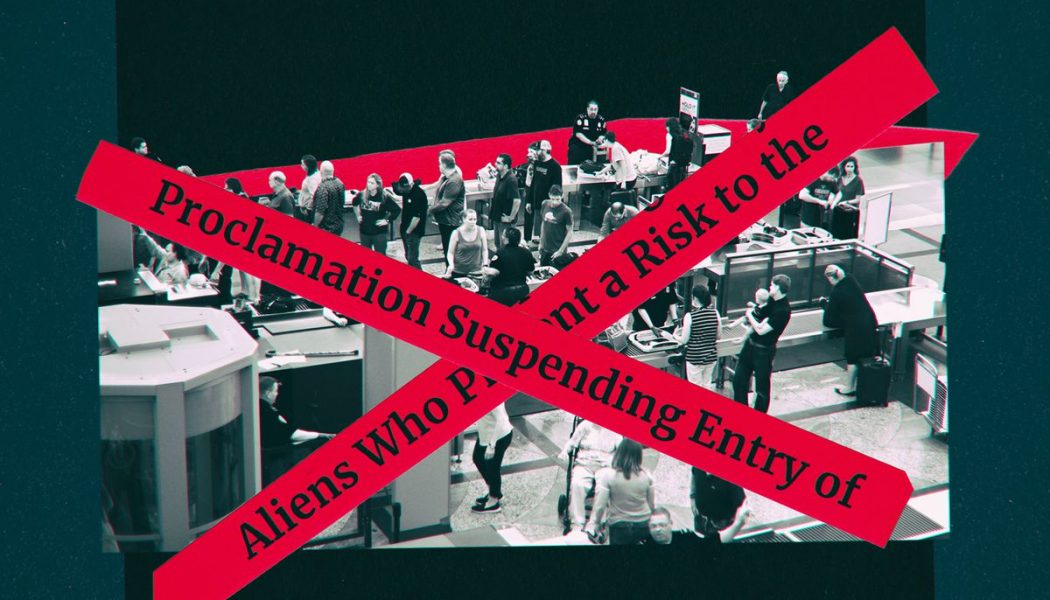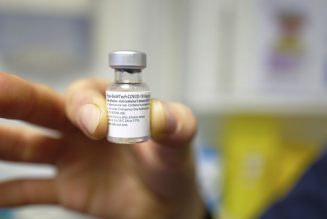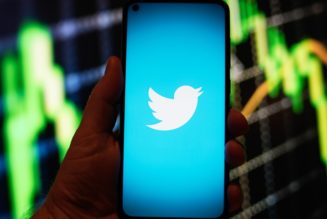On June 22nd, 2020, President Donald Trump issued a proclamation suspending the entry of guest workers to the United States, supposedly in response to unprecedented unemployment levels. Specifically, the proclamation ordered immigration officials to deny entry stamps to a range of guest worker visas, including H-1Bs. The result is that, for tens of thousands of valid visa holders, entry to the United States is no longer guaranteed.
In theory, the proclamation makes exceptions for medical workers and scientists involved in coronavirus research. But the unusual enforcement mechanism and immediate impact of the proclamation have meant that most of those distinctions have been lost in the chaos, as foreign-born workers and their employers adjust to the new status quo.
The Verge spoke to four people affected by the order — some caught outside the country and unable to return, others on US soil but unable to leave. All four requested anonymity out of the reasonable fear that immigration officials might retaliate if they spoke out publicly. Their statements have been edited for clarity, and in some cases, identifying information has been removed.
Out of respect to the experience of the quoted individuals, we have reproduced their understanding of the situation directly. This is not a legal analysis. Anyone seeking information on how the proclamation affects their personal status should consult an immigration lawyer.
:no_upscale()/cdn.vox-cdn.com/uploads/chorus_asset/file/20057630/VRG_4077_002.jpg)
Michael, from Egypt, working at a tech company in the Bay Area
I’m in the US right now, so my situation is that if I leave, I can’t get back. My brother was going to get married this year in Egypt. I figured I would get the stamp on October 1st. My brother was planning the wedding around that. But now that I can’t get the stamp, I don’t know what we’re going to do.
I feel like I’m selectively imprisoned. If someone from my family gets sick, I can’t go back. The pandemic is happening in Egypt, too, and I can’t help them. I can’t even go to funerals. You start to think, “What would I do if something went wrong, if I really had to leave?” I have an apartment here that I rent. I have all my stuff here. Should I just sell all my stuff before I go, not knowing if I’m going to be able to come back? And then if I can somehow get back into the US, I’ll buy all my stuff again? It’s crazy.
It’s funny because, if it had happened just a little differently, none of this would have affected me. Until recently, I was still on an extension of my student visa, the F-1. I applied for the H-1B because I’m a worker now, so I should get the worker visa, but I still had years left on the Student visa. If I just hadn’t applied for the H-1B, my F-1 would still be valid, and I could leave the country without any problems. But now I’ve got a working visa that isn’t valid and a valid visa that doesn’t work.
I left Egypt after the revolution, and this is not the America that I signed up for. I appreciate the opportunities that I was given to learn. But after the education, things have been crazy. I invested seven years here, and then I have to invest more years to get a green card and five more years to get citizenship, all to stay in a country that can’t keep its promises and is run by a clown.
We did everything right. And it’s just not working. The promises keep changing. It’s just a flaky country. In some ways, you feel like, that’s the American dream? It’s not really a good dream.
:no_upscale()/cdn.vox-cdn.com/uploads/chorus_asset/file/20057632/VRG_4077_004.jpg)
Sara, from India, a medical researcher in New York
I’m in the US right now, but I can’t leave since the proclamation because I wouldn’t be able to come back. My husband is overseas, so I’m here with my child, and now we don’t know when he will be able to join us. He’s a professor at a US university, but he’s teaching at a branch campus in another country. He was in the process of getting a different visa so he could come back, but now everything is on hold and so it won’t be possible.
I do biomedical research, but my current project doesn’t have to do with COVID. We actually have a COVID project ongoing at my lab, and I may switch to that just because I’m interested in it, but I’m still not sure if that will actually exclude me from the ban. We got a very straight answer from our university that if you don’t have a visa stamp, don’t leave the country because you won’t be able to get back. They didn’t say anything about exceptions.
My parents are 80 years old, they don’t have anyone to look after them because I’m the only child. Anyone can catch COVID, especially in a country like India. If something happens, I’ll have to decide whether to leave my job and just go there. All the friends I’ve talked to, that’s the main concern we all have: what will happen if our elderly parents become sick? Will we abandon our parents and not know what will happen to them? Or leave our homes and never come back? I think about my son’s future and what it would mean for him to grow up outside the US. It’s an inhuman situation.
I live in a free country and a free world. No authority should be able to tell me, don’t go there. In 2020, that should not exist in a democratic country. We never faced this kind of situation before. We had a lot of dreams of doing our research here, getting jobs and living the rest of our lives here. Now we are rethinking all of that. Maybe we need to consider some other country where at least we’ll be respected and have freedom.
:no_upscale()/cdn.vox-cdn.com/uploads/chorus_asset/file/20057633/VRG_4077_003.jpg)
Ana, from India, working at a tech company in Connecticut
I come from a working class South Indian family. My parents pooled all of their savings so I could get my master’s degree. They sent me in 2015 so I could find a job, start paying back my education loan and other debts I have in India. My sister went to the US two years later, so I could help her with the tuition fee and living expenses.
She had finished three semesters of her master’s degree when she tore her meniscus and needed surgery. We decided to get the surgery in India so my parents could care for her, and because we couldn’t afford the deductibles in the US.
This is what average, working class families in India do. Our lives depend on each other as a family and our greatest strength lies in that. When something like this proclamation happens, it doesn’t just affect me, but my siblings, my parents and my grandparents.
Now my sister and I are in India, and I don’t think my H-1B will let me return to the US. I’m good at my job, but I’m worried I’ll be fired if I can’t get back, which would mean losing my H-1B status entirely. My sister can re-enter under her student visa, but she can’t pay for school if I can’t keep my job, which would mean losing her student visa too.
It makes me so angry that I don’t have a right to defend the career I built. I hope the people in charge understand how hard it is for families like mine. This is tearing families apart as much as any natural disaster, except that there are people in power who are making it happen and have the power to stop it.
:no_upscale()/cdn.vox-cdn.com/uploads/chorus_asset/file/20057635/VRG_4077_005.jpg)
Alexander, from Russia, bound for a hospital residency program in a major East Coast city
My residency program was supposed to start the same day the proclamation came down, so I have the visa but they’re waiting on the stamp. Instead of treating coronavirus patients, I’m stuck with my wife in Moscow, not sure if we’ll ever make it to the US. I already quit my job here and sold almost everything I own. I have to move out of my apartment by the end of June, which is in five days or so.
Half of the people in my residency program are stuck outside the country because of the same immigration issues. We have a lot of COVID-19 patients in our hospital, and I’m part of the team that cares for those patients on a daily basis, especially in the intensive care unit. Now the staff is swamped because they have to do twice as much work.
In theory, doctors involved in treating coronavirus are exempt from the order, but for a lot of residents in my program, the problems are bigger than just getting the stamp. Either they can’t leave the countries of origin because there are no flights or there’s a travel ban or they can’t reach the embassy because it’s completely shut down. A friend in another program told me they were down to 20 percent staff.
I’m lucky because the embassies in Russia are still accepting emergency appointments like mine. My visa was taken by the embassy on June 19th for processing, but then I heard back on Monday that the proclamation was holding it up. I couldn’t get a straight answer about whether I’m exempt. I think they just didn’t know what to tell me.
I tried asking the State Department on Twitter for any details about exemption criteria, if it means that my wife is also exempt, but they just kept referring me to the proclamation. They don’t really know what to do about it.
[Ed. note: Shortly after this interview was conducted, Alexander received his passport from the embassy with the approved visa attached. The consular officer said he “probably should be okay” to enter the US, but he was advised to contact Customs and Border Protection officials at his port of entry in advance. Those officials referred him back to the embassy and would not commit to a specific interpretation of his status. “They just keep referring to each other without clear knowledge of what to do,” he said.]










